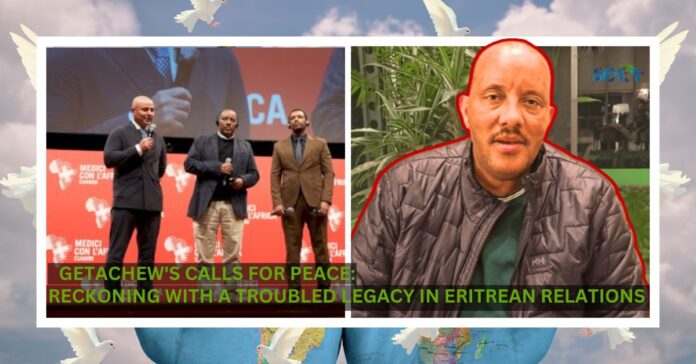Getachew Reda, the President of Tigray’s Interim Administration, recently called for peaceful relations with Eritrea, stating, “We want to make peace with the Eritreans; war must no longer be an option.” While his remarks reflect a welcome shift in rhetoric, they cannot be fully appreciated without examining the TPLF’s historical approach to Eritrea, marked by contradictions, unresolved actions, and selective accountability.
A History of Resistance to Peace
Over the past 25 years, the TPLF-led Ethiopian government consistently resisted meaningful peace efforts with Eritrea. The 1998-2000 war, sparked by disputes over the border town of Badme, devastated both nations. Despite the Algiers Agreement in 2000 and the Eritrea-Ethiopia Boundary Commission (EEBC) ruling awarding Badme to Eritrea, the TPLF-dominated government defied international law, refusing to withdraw and prolonging the stalemate for two decades.
During this period, the TPLF leveraged Western diplomatic and financial support to isolate Eritrea. The result was a suffocating economic and diplomatic blockade on Eritrea, with sanctions and international narratives shaped against the country. While some Tigrayan scholars have since admitted to this strategy, TPLF leaders, including Getachew Reda, continue to avoid acknowledging their role in undermining Eritrean sovereignty.
The November 2020 War and its Consequences
Getachew’s recent remarks also omit critical details about the November 2020 conflict. Tensions erupted when TPLF forces attacked Ethiopia’s Northern Command in Tigray, triggering a war that extended into Eritrea. The TPLF’s launch of rockets into Eritrean cities marked a significant escalation, directly involving Eritrea in the conflict.
During the Tigray war, divisive rhetoric and actions by TPLF generals further strained relations with Eritrea. General Migbay’s inflammatory remarks targeting Eritrean social groups, particularly those of Islamic faith, were not only divisive but also dangerous. Such tactics contradicted any claims of fostering unity or peace with Eritrea.
The Irony of Accountability
While Getachew emphasizes accountability for atrocities committed during the Tigray conflict, he and his comrades remain silent about their actions toward Eritrea. For 20 years, the TPLF defied the EEBC ruling, occupying Eritrean territories and refusing to implement the Algiers Agreement. Even after the Pretoria Peace Agreement, officials like former Ethiopian Ambassador and one negotiators of Pretoria agreement, Wondimu Asaminew have questioned Eritrea’s right to administer its territories, suggesting international tribunals—a stark irony considering TPLF’s prior violations of international law.
This selective approach to accountability highlights a deeper issue: some Tigrayan elites, stuck in outdated notions of regional dominance, have consistently resisted genuine peace efforts with Eritrea.
A Path to Genuine Peace
Getachew’s call for peace is significant, but it remains hollow without a full reckoning of past actions. True reconciliation demands acknowledgment of the TPLF’s role in prolonging the Eritrea-Ethiopia conflict, instigating the 2020 war, and using divisive strategies to undermine Eritrean sovereignty.
Eritrea’s resilience over the years has redefined the balance of power in the Horn of Africa. The global dynamics that once favored the TPLF have shifted toward a more balanced multipolar world, where attempts to isolate Eritrea are unlikely to succeed.
For peace to take root, TPLF leaders must go beyond rhetoric and embrace accountability. As Getachew himself acknowledged, “Guns have gone silent, but thousands live in extreme vulnerability.” The path forward must include rebuilding trust with Eritrea, honoring agreements, and fostering genuine regional stability.
Conclusion: Peace is a Two-Way Street
The road to peace is not a one-way street. Getachew’s words must be matched by actions that demonstrate a willingness to repair the damage done to Eritrea. Only through accountability, honesty, and mutual respect can the wounds of the past begin to heal.

